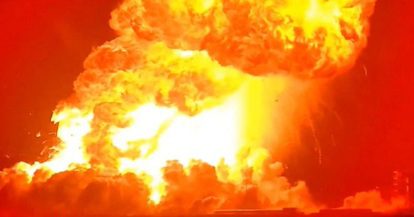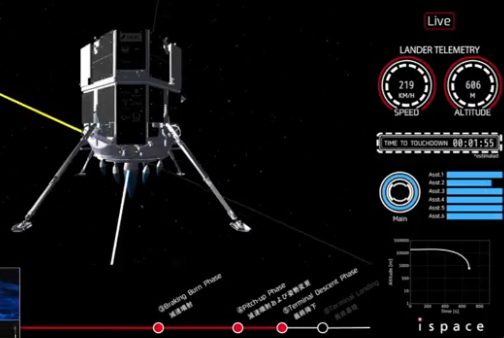A design flaw caused the premature launch separation that damaged the Progress M-027M cargo craft and sent it into an uncontrollable spin. There was a failure to model properly the dynamic and frequency response of the conjoined near-empty, third stage of a newer version of the Soyuz and the Progress spacecraft.
The Progress had been launched by a Soyuz 2-1a vehicle. Apart from one previous mission, Progress craft are normally launched on a Soyuz U. While there are no major differences between the third stage of a Soyuz U and the “digitally controlled” Soyuz 2-1a, subtle differences in their designs changed the flight dynamics of the system which, in turn, messed up the computer controlled separation sequence.
The Commission investigating the failure found that a separation of the spacecraft from the Soyuz 2-1a third stage took place prematurely 527 seconds after lift off. The premature separation command was given because of errors in the flight control software. It used assumed flight dynamics from past Soyuz U flight experience rather than taking account of the differences in frequency-dynamic characteristics of a Soyuz-2.1a third stage/Progress M assembly.
This premature separation was followed by the release of oxidiser and fuel forward of the stage to limit debris risk and reduce the stage’s orbit. However, while this was intended, it happened much earlier than expected relative to the expected position of the spacecraft. Unfortunately, the fuel oxidiser cloud exploded with the prematurely separated spacecraft being too close by. The spacecraft was propelled into an apogee about 40 km higher that the planned orbit, while the third stage was found in an orbit with an apogee 20 km less than expected, with the Progress M-027M craft being left in a spin. Attempts to establish communication with the spacecraft failed due to explosion damage to the spacecraft’s antennas.
Progress M-027M re-entered safely over the Pacific at 0204 GMT on 8 May 2015, with any surviving debris falling into the ocean. The failure resulted in an insurance loss of US$39 million. A Soyuz 2-1a rocket is due to launch the next Progress cargo flight, Progress M-028M, in July 2015.






